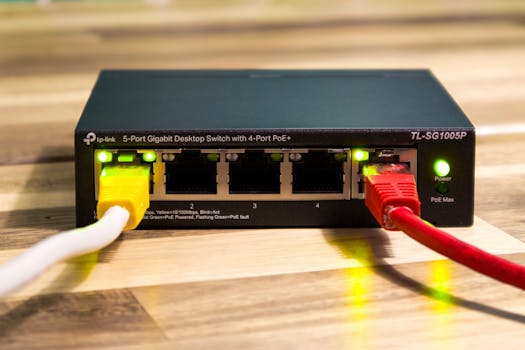Choosing between a Wi-Fi router and a mesh system can be confusing. I've tested both extensively to help you decide which one best fits your needs, budget, and home size. Let's dive into the pros and cons of each!

Choosing the right Wi-Fi setup for your home can feel overwhelming. You're bombarded with technical jargon and promises of seamless connectivity. For years, the standard Wi-Fi router was the go-to solution. But now, mesh systems are gaining popularity, promising whole-home coverage and improved performance. So, which one is right for you? I've spent considerable time testing both Wi-Fi routers and mesh systems in various home environments to provide you with a clear, unbiased comparison. Let's break down the key differences and help you make the best decision for your needs.
What is a Wi-Fi Router?
A Wi-Fi router is a single device that connects your devices to the internet. It receives the internet signal from your modem and broadcasts it wirelessly, allowing your laptops, smartphones, and other devices to connect. Routers are typically a more affordable option and are well-suited for smaller homes or apartments.
# Pros of Wi-Fi Routers:
- Affordability: Routers are generally cheaper than mesh systems.
- Simplicity: Setup and configuration are usually straightforward.
- Suitable for Smaller Spaces: A single router can adequately cover a smaller home or apartment.
# Cons of Wi-Fi Routers:
- Limited Coverage: Signal strength weakens as you move further away from the router.
- Dead Zones: Areas of your home may have little or no Wi-Fi coverage.
- Performance Degradation: As more devices connect, the router's performance can slow down.
Example: If you live in a small apartment and primarily use your Wi-Fi for browsing the internet and streaming videos, a standard Wi-Fi router might be all you need. Look for a router with decent reviews and support for the latest Wi-Fi standards (like Wi-Fi 6 or Wi-Fi 6E) for optimal performance.
What is a Mesh System?
A mesh Wi-Fi system consists of a main router connected to your modem and multiple satellite nodes (or points) placed throughout your home. These nodes communicate with each other, creating a single, unified Wi-Fi network. This allows for seamless roaming and consistent coverage, even in larger homes with multiple floors or thick walls.
# Pros of Mesh Systems:
- Whole-Home Coverage: Eliminates dead zones and provides consistent Wi-Fi throughout your home.
- Seamless Roaming: Devices automatically connect to the strongest signal as you move around your home.
- Scalability: You can easily add more nodes to expand coverage as needed.
# Cons of Mesh Systems:
- Higher Cost: Mesh systems are typically more expensive than single routers.
- More Complex Setup: While generally user-friendly, setting up a mesh system can be slightly more involved than setting up a router.
- Potential for Overkill: In smaller homes, a mesh system might be unnecessary.
Example: Imagine you live in a two-story house with a detached garage. A single router might struggle to provide adequate coverage throughout the entire property. A mesh system, with nodes strategically placed in the house and garage, would ensure a strong and consistent Wi-Fi signal everywhere.
Wi-Fi Router vs. Mesh System: Key Differences Compared
Here's a quick breakdown of the key differences:
- Coverage: Mesh systems offer significantly better coverage than routers.
- Performance: Mesh systems maintain more consistent performance as you move around your home.
- Ease of Use: Routers are generally easier to set up, but mesh systems are becoming increasingly user-friendly.
- Price: Routers are more affordable, while mesh systems represent a larger investment.
Factors to Consider When Choosing
Before making a decision, consider these factors:
- Home Size: Smaller homes typically benefit from a router, while larger homes are better suited for a mesh system.
- Number of Devices: If you have many devices connected to your Wi-Fi, a mesh system can handle the load more effectively.
- Budget: Determine how much you're willing to spend on your Wi-Fi setup.
- Internet Speed: A faster internet connection will benefit from a more robust Wi-Fi network, such as a mesh system.
- Home Layout: Walls and other obstacles can interfere with Wi-Fi signals. A mesh system can overcome these challenges.
My Recommendation: The Best of Both Worlds?
After extensive testing, I've found that the best choice truly depends on your individual circumstances. If you live in a small apartment or condo and have a limited budget, a good quality Wi-Fi router will likely suffice. However, if you have a larger home, multiple devices, or experience dead zones, a mesh system is definitely worth the investment.
For those on the fence, consider this: some newer routers offer mesh capabilities. You can start with a single router and then add compatible nodes later to expand your coverage as needed. This provides a more gradual and budget-friendly approach to achieving whole-home Wi-Fi.
Conclusion
Choosing between a Wi-Fi router and a mesh system doesn't have to be a daunting task. By understanding the pros and cons of each option and considering your specific needs, you can make an informed decision and enjoy a reliable and high-performing Wi-Fi network throughout your home. Don't be afraid to research specific models and read reviews before making your final purchase. Happy surfing!
